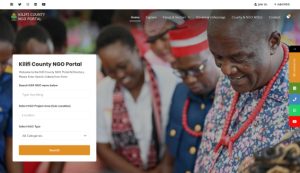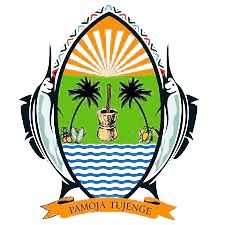Informed Decision-Making for Enhanced Gender Equality
The Kilifi County Gender Department places a high priority on research and data collection to drive effective gender policies and programs. By gathering and analyzing data, we ensure that our initiatives are evidence-based and responsive to the needs of our community. Our commitment to rigorous research and data collection supports informed decision-making and fosters continuous improvement in gender equality efforts.
Comprehensive Data Collection
Surveys and Assessments:
We conduct regular surveys and assessments to gather data on various aspects of gender equality, including economic participation, health outcomes, and experiences of gender-based violence. These surveys help us understand the current situation, identify gaps, and track progress over time.
Needs Assessments:
Targeted needs assessments are carried out to gather detailed information on the specific needs and challenges faced by different groups, such as women, youth, and marginalized communities. This data guides the development of tailored interventions and programs.
Community Feedback:
We actively seek feedback from community members through focus groups, interviews, and public consultations. This participatory approach ensures that the voices of those directly affected by gender issues are heard and considered in our planning and decision-making processes.
Data Analysis and Interpretation
Quantitative Analysis:
Our team employs statistical methods to analyze quantitative data collected from surveys and assessments. This analysis provides insights into trends, patterns, and disparities related to gender equality and helps in making data-driven decisions.
Qualitative Analysis:
We also conduct qualitative analysis to interpret data from interviews, focus groups, and case studies. This approach offers a deeper understanding of the experiences and perspectives of individuals affected by gender issues.
Benchmarking and Comparisons:
We use data to benchmark our performance against national and regional standards. By comparing our progress with other areas, we identify best practices and areas for improvement.
Research Initiatives
Gender Equality Research:
We undertake research projects focused on various dimensions of gender equality, such as women’s economic empowerment, access to education, and participation in leadership. These research initiatives contribute to the broader knowledge base and inform policy development.
Impact Evaluations:
Evaluations of our programs and interventions are conducted to assess their effectiveness and impact. These evaluations help us understand what works, what doesn’t, and how we can enhance our strategies for better outcomes.
Collaborative Research:
We collaborate with academic institutions, research organizations, and international partners to undertake joint research projects. These collaborations enhance our research capacity and provide access to a wider range of expertise and resources.
Data Management and Security
Data Quality Assurance:
We implement rigorous data quality assurance processes to ensure the accuracy, reliability, and validity of the data collected. This includes regular audits, data cleaning, and verification procedures.
Confidentiality and Privacy:
We uphold strict confidentiality and privacy standards to protect the personal information of individuals participating in our research. Data is anonymized and securely stored to prevent unauthorized access.
Ethical Standards:
All research activities are conducted in accordance with ethical standards and guidelines. We ensure informed consent from participants and respect their rights throughout the research process.
Reporting and Dissemination
Reports and Publications:
We produce detailed reports and publications based on our research findings. These documents are made available to stakeholders, policymakers, and the public to share insights and promote transparency.
Data Visualization:
We use data visualization tools to present research findings in an accessible and engaging manner. Visual representations such as charts, graphs, and infographics help convey complex information clearly.
Policy Briefs:
Policy briefs are developed to summarize key research findings and provide actionable recommendations for policymakers. These briefs support evidence-based policy-making and advocate for necessary changes.
Support and Partnerships
Capacity Building:
We offer training and capacity-building programs for staff and partners to enhance their skills in data collection, analysis, and research. This ensures high-quality research practices across the department.
Funding and Resources:
We seek funding and resources to support our research and data collection activities. This includes grants, donations, and partnerships with organizations that share our commitment to gender equality.
The Kilifi County Gender Department’s focus on research and data collection ensures that our initiatives are grounded in evidence and responsive to community needs. Through systematic data gathering, analysis, and dissemination, we strive to drive meaningful progress towards gender equality and create positive impacts in our community.








